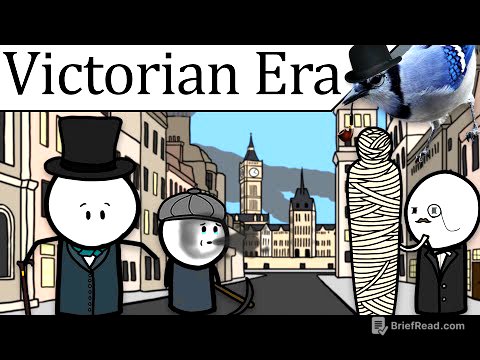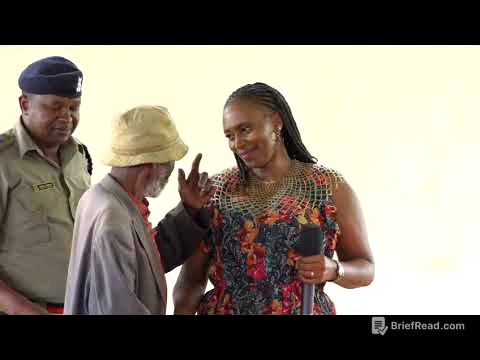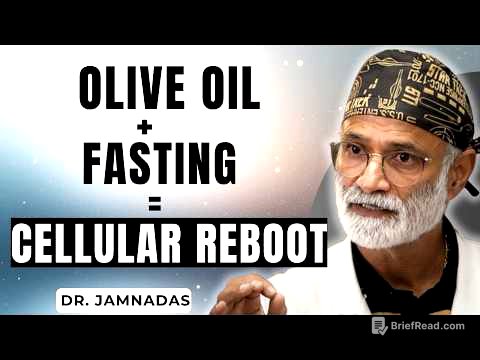TLDR;
This sermon explores the profound significance of forgiveness as the most distinctive benefit of Christianity, contrasting it with other perceived benefits like morality, love, or happiness. It emphasizes that escaping God's wrath through the forgiveness of sins is humanity's greatest need, a need uniquely met by the Christian gospel. The passage in Mark 2:1-12 illustrates Jesus' authority to forgive sins, demonstrated through the healing of a paralytic. The story highlights the faith required for salvation, the challenge to religious leaders, and the ultimate revelation of Jesus' divine power and identity.
- Forgiveness of sins is the most distinctive benefit of Christianity.
- Jesus demonstrates His authority to forgive sins by healing a paralytic.
- The story challenges listeners to recognize Jesus as either a blasphemer or God.
Introduction [0:03]
The sermon begins by introducing Mark 2:1-12, a significant narrative from Jesus' ministry. It poses the question of what is the most distinctive benefit Christianity offers, setting the stage to explore the unique gift of forgiveness.
The Greatest Benefit of Christianity [0:16]
The speaker addresses the question of Christianity's most distinctive benefit, contrasting it with common perceptions such as morality, love, peace, fulfillment, and happiness. While acknowledging these as by-products of Christianity, the speaker asserts that the greatest benefit is escaping God's wrath and eternal hell through the forgiveness of sins, a need that only the Christian gospel addresses. Forgiveness of sins moves people from hell to heaven.
God's Desire to Forgive [4:24]
The sermon emphasizes God's willingness and eagerness to forgive, citing scriptural references from both the Old and New Testaments that portray God as compassionate, gracious, and merciful. It highlights that God finds glory in forgiving sinners, an act consistent with His nature and justice, made possible through Jesus Christ's substitutionary sacrifice.
Mark 2:1-12 - The Story of Forgiveness [9:35]
The focus shifts to Mark 2:1-12, where Jesus heals a paralytic in Capernaum. The narrative is examined through the roles of the curious crowd, the paralytic, the Savior, and the hostile leaders. The story illustrates Jesus' authority over disease and His power to forgive sins, which is central to the miracle.
The Curious Crowd [12:52]
The setting is described as a crowded house in Capernaum, where Jesus is teaching. The crowd is characterized as curious and spiritually passive, primarily drawn by the desire for miracles rather than genuine spiritual seeking. The presence of Pharisees and scribes, seeking to trap Jesus, adds tension to the scene.
The Believing Sinner [24:39]
The action begins with a paralytic brought by four men, who demonstrate their belief in Jesus' healing power by digging through the roof to reach Him. The crowd's indifference contrasts with the determination of the paralytic and his friends, highlighting their faith in Jesus' ability to heal.
The Forgiving Savior [30:40]
Jesus, seeing their faith, declares the paralytic's sins forgiven, an act that goes beyond physical healing to address the man's spiritual need. This demonstrates Jesus' authority to forgive sins, a power that the religious leaders question. The faith of the paralytic is identified as spiritual faith, indicating belief in Jesus as the source of salvation.
The Hostile Leaders [36:58]
The scribes present are reasoning in their hearts that Jesus is blaspheming by forgiving sins, as they believe only God can do this. They are correct in their understanding of who can forgive sins, but incorrect in their assessment of Jesus, who is either a blasphemer or God.
Jesus' Authority and the Miracle [39:23]
Jesus, aware of their thoughts, challenges the scribes by asking which is easier to say: "Your sins are forgiven," or "Get up, pick up your pallet, and walk?" He then heals the paralytic to prove His authority to forgive sins, demonstrating that He is God. The miracle validates His claim to forgive sins, showcasing His power over both the physical and spiritual consequences of sin.
The Astonished Crowd [49:20]
The crowd is amazed and glorifies God but attributes the authority to men, failing to recognize Jesus' divine nature. This reaction falls short of repentance and faith, highlighting their blindness to Jesus' true identity. The sermon concludes by reiterating that Jesus performed miracles to demonstrate His divinity and His power to forgive sins, an offer still available to those who repent and believe in Him.









